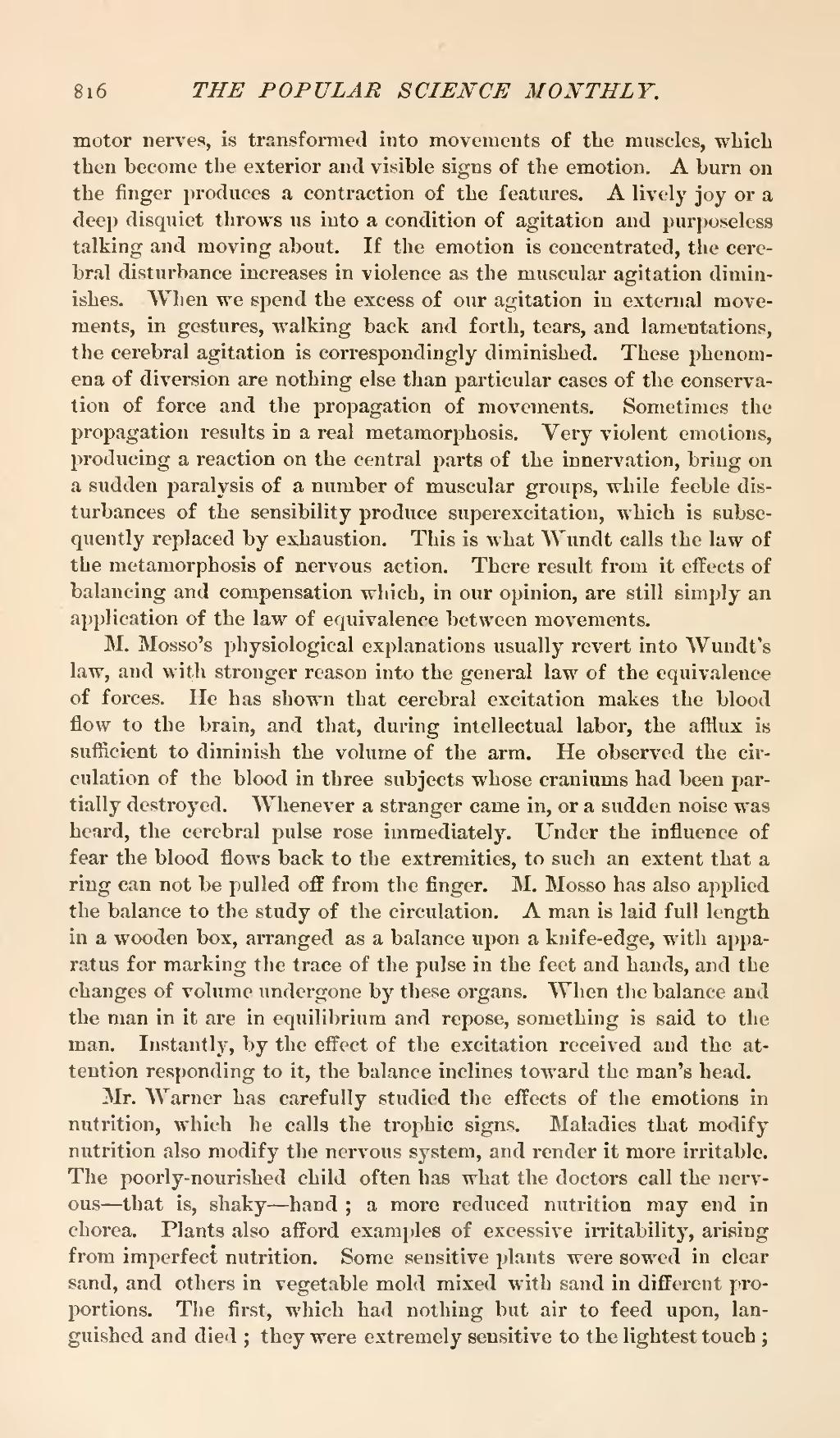motor nerves, is transformed into movements of the muscles, which then become the exterior and visible signs of the emotion. A burn on the finger produces a contraction of the features. A lively joy or a deep disquiet throws us into a condition of agitation and purposeless talking and moving about. If the emotion is concentrated, the cerebral disturbance increases in violence as the muscular agitation diminishes. When we spend the excess of our agitation in external movements, in gestures, walking back and forth, tears, and lamentations, the cerebral agitation is correspondingly diminished. These phenomena of diversion are nothing else than particular cases of the conservation of force and the propagation of movements. Sometimes the propagation results in a real metamorphosis. Very violent emotions, producing a reaction on the central parts of the innervation, bring on a sudden paralysis of a number of muscular groups, while feeble disturbances of the sensibility produce superexcitation, which is subsequently replaced by exhaustion. This is what Wundt calls the law of the metamorphosis of nervous action. There result from it effects of balancing and compensation which, in our opinion, are still simply an application of the law of equivalence between movements.
M. Mosso's physiological explanations usually revert into Wundt's law, and with stronger reason into the general law of the equivalence of forces. He has shown that cerebral excitation makes the blood flow to the brain, and that, during intellectual labor, the afflux is sufficient to diminish the volume of the arm. He observed the circulation of the blood in three subjects whose craniums had been partially destroyed. Whenever a stranger came in, or a sudden noise was heard, the cerebral pulse rose immediately. Under the influence of fear the blood flows back to the extremities, to such an extent that a ring can not be pulled off from the finger. M. Mosso has also applied the balance to the study of the circulation. A man is laid full length in a wooden box, arranged as a balance upon a knife-edge, with apparatus for marking the trace of the pulse in the feet and hands, and the changes of volume undergone by these organs. When the balance and the man in it are in equilibrium and repose, something is said to the man. Instantly, by the effect of the excitation received and the attention responding to it, the balance inclines toward the man's head.
Mr. Warner has carefully studied the effects of the emotions in nutrition, which he calls the trophic signs. Maladies that modify nutrition also modify the nervous system, and render it more irritable. The poorly-nourished child often has what the doctors call the nervous—that is, shaky—hand; a more reduced nutrition may end in chorea. Plants also afford examples of excessive irritability, arising from imperfect nutrition. Some sensitive plants were sowed in clear sand, and others in vegetable mold mixed with sand in different proportions. The first, which had nothing but air to feed upon, languished and died; they were extremely sensitive to the lightest touch;
